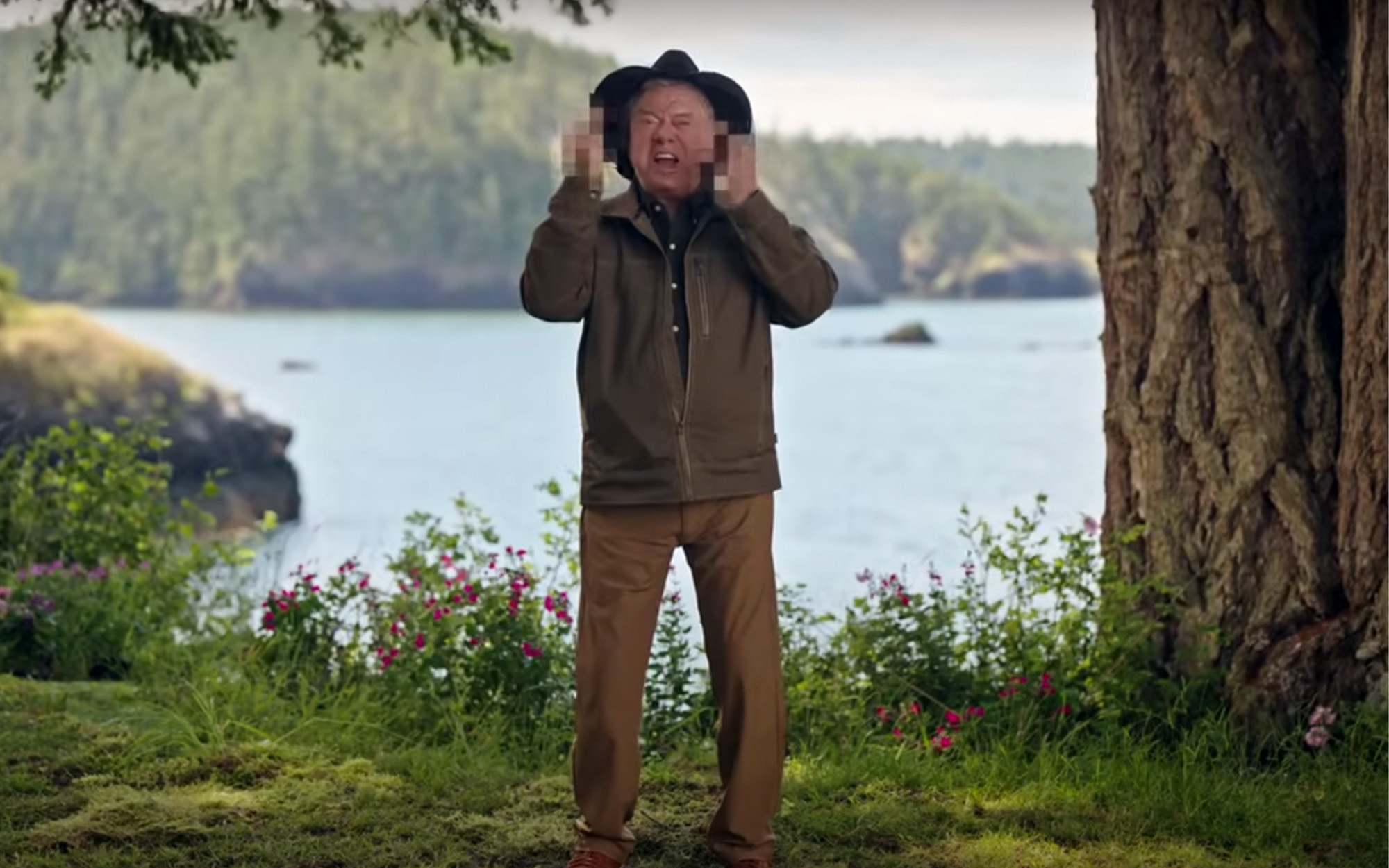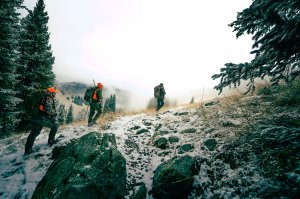William Shatner is getting some backlash for his role in a recent comic advertisement that slams open-net pen salmon farms and calls out the British Columbian government for approving a five-year extension on the farms currently operating off the B.C. coast. In a statement shared with the Mission City Record, the Coalition of First Nations for Finfish Stewardship demanded an apology from the veteran actor, who they say “attacked their dignity” and disrespected their long-held role as stewards of their native lands and waters. The spat also gets at the larger controversy over ocean-based salmon farming practices, with plenty of research showing that these farms are bad for wild salmon.
The First Nations group said it was even more disappointed in Ryan Reynolds for his role in the ad, although it’s unclear what that role is. Reynolds isn’t shown in a YouTube video of the ad, which was sponsored and paid for by Pacific Wild. Both actors are Canadian, with Shatner hailing from Montreal and Reynolds from Vancouver.

“Sadly this response from people like Mr. Shatner and Mr. Reynolds is all-too-common in today’s Canada,” the Coalition writes in the statement. “This is a classic example of rich, elite, removed, urban white men overriding the wishes of vulnerable Indigenous communities, a reoccurring theme within the Liberal government and recent decisions made by politicians like Minister Wilkinson.”
Those “recent decisions” include a June 19 announcement by B.C. Fisheries Minister Diane Lebouthillier, which spoke to the government’s plan to remove all open-net pen salmon farms from coastal waters by 2029. As part of that phase-out plan, however, the B.C. government approved a five-year license extension for the open-net pen farms already in operation. This approval is what led Pacific Wild to create the controversial ad in the first place.
In the video, Shatner bashes open-net pen salmon farms in the most un-Canadian way possible: by launching into a profanity-laced tirade against the farmers and those who support them.
“When I see what open-net pen salmon farming is doing to the environment and wildlife, I just can’t be Canadian aboot it any longer! So, repeat after me,” says a 93-year-old Shatner in the heavily beeped video. “Fuck off, open-net pen salmon farms! Your asshole salmon farms are fucking up our wild salmon populations! It’s a shit stain on our nation!”
Shatner then calls on other Canadians to do the same, and he cheers on their creatively-worded insults. Hockey legend and Ontario native Kirk McClain is featured in the ad, as is a roaring black bear. At one point in the video, a baby in a stroller even gives salmon farmers the finger.

The Coalition that took offense to the ad says it disregards the nearly 700 Indigenous Canadians who work in the industry and the economic contributions that industry provides. The Coalition also points out that human activities since colonization are the main causes behind plummeting stocks of wild Pacific salmon, and that First Nations people have had to take up salmon farming just to maintain some semblance of the resource.
It’s a fair point. But there’s more than one way to farm fish, and abundant research shows that open-net pen salmon farming is unambiguously bad for wild salmon. (Some aquaculture exports are promoting a shift to land-based salmon farms, and there are companies in both Europe and the U.S. that are developing new ways to do this.) The vast majority of open-net pen farms in operation today raise non-native Atlantic salmon, which are cooped up by the tens of thousands in large pens made of plastic netting. These floating feedlots generate massive amounts of concentrated waste that damage marine life, and they’re hotbeds for parasites and diseases.
“Unlike Las Vegas, what happens in net pens doesn’t stay in net pens,” Dr. Lawrence Dill writes in a 2017 study that summarizes the risks of open-net pen salmon farms to wild Pacific salmon. “It seems that the evidence of risk to wild salmon is sufficient that the precautionary principle should be invoked, and Governments should mandate and support the aquaculture industry’s move from open-net pens to land-based closed containment production systems.”
Many farmed Atlantics become physically ill while in the pens, with crooked spines, blunted notes, damaged otoliths (ear bones), and other deformities. Most of these fish are riddled with lice, and their survival rates are abysmal when compared to wild fish. And because these pens lie in the middle of migration routes used by wild Pacific salmon, those ailments can then be passed onto wild fish.
In a worst-case scenario, the farmed fish can escape their pens and interact with wild Pacific salmon to devastating effect. This is exactly what happened off the coast of Washington State in August 2017, when more than 300,000 farmed Atlantic salmon escaped into Puget Sound. The environmental disaster led to a ban on open-net pen farming in Washington waters, which brought the state’s policies in line with the rest of the West Coast, as the practice was already banned in California, Oregon, and Alaska.
Read Next: Midwestern Fertilizer Spill Kills Nearly Every Single Fish in 60-Mile Stretch of River
A large segment of Washington State’s Indigenous community also hailed the ban as a victory for wild salmon and steelhead conservation. This included the Swinomish Tribe and the Lummi Nation, the latter of which received more than half a million dollars in damages from the aquaculture company that allowed the 2017 breach to occur.
And as Pacific Wild points out, the First Nations people of B.C. are not universally supportive of open-net pen salmon farming, either. The group says that along with roughly 70 percent of all Canadians, more than 120 First Nations in Canada support the removal of open-net pen salmon farms. The Coalition of First Nations for Finfish Stewardship was not immediately available for comment, but according to the group’s website, it appears to include members from 17 First Nations.


